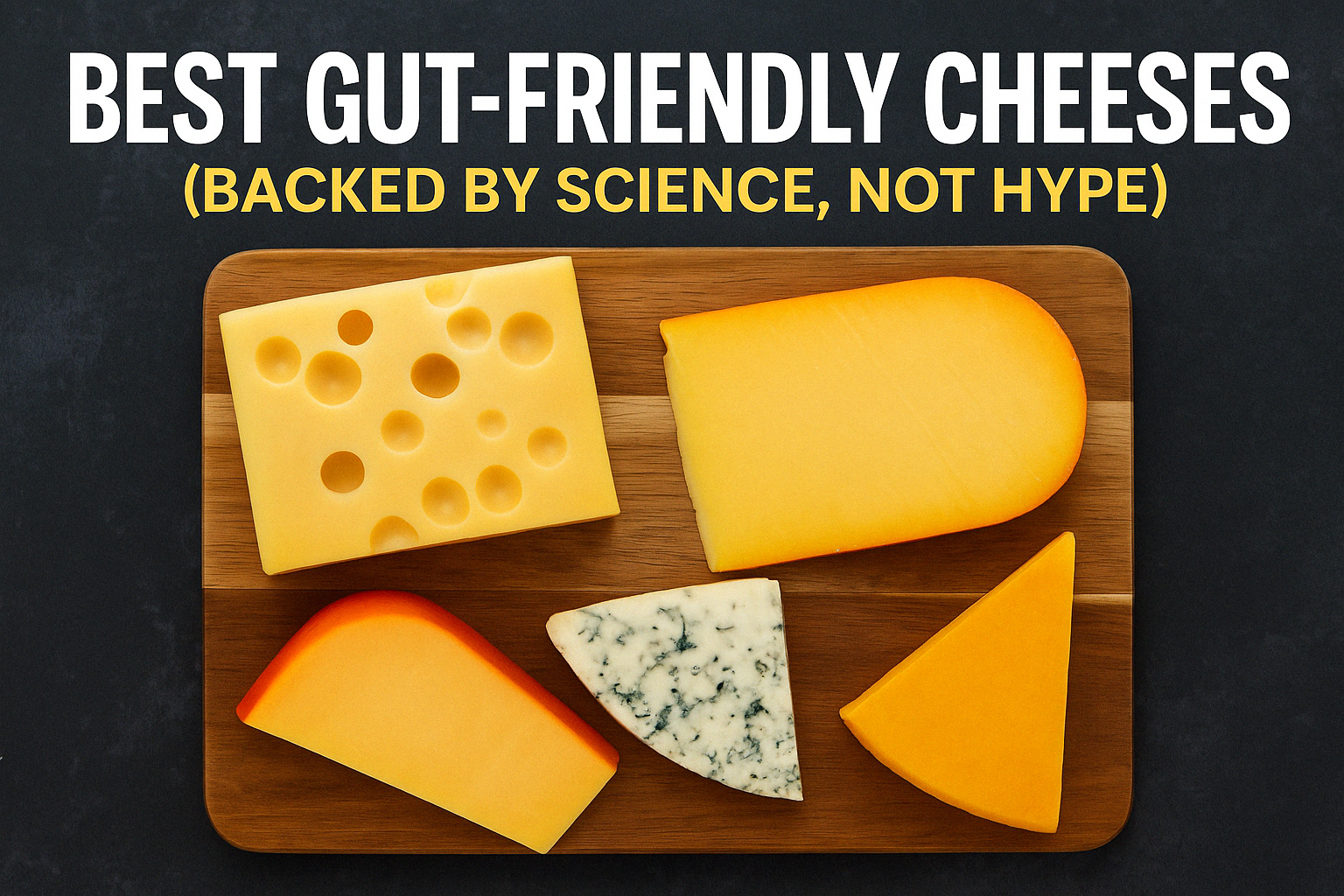If someone told you cheese could be good for your gut, you’d probably laugh — then ask for another slice. But here’s the real deal: some cheeses aren’t just delicious — they’re gut-friendly cheeses that support your microbiome.
In this guide, we’ll show you which cheeses actually help (backed by science), what to avoid, and how to shop smart if you want to eat your way to better digestion.
🧫 What Makes Cheese Good for Your Gut?
Gut-friendly cheeses are typically:
- Fermented
- Aged naturally
- Made with live cultures like Lactobacillus or Bifidobacterium
These cheeses can:
- Improve digestion
- Support your immune system
- Boost microbial diversity
- Reduce bloating and discomfort
🧠 According to Harvard Health, fermented foods like cheese can feed beneficial gut bacteria and improve microbiome balance.
🧀 Best Gut-Friendly Cheeses (Top Picks Backed by Science)
These cheeses don’t just taste good — they do good inside your gut:
1. Aged Cheddar
- Often contains live cultures like Lactobacillus and Bifidobacterium
- Supports digestive health
- Naturally lower in lactose than fresh cheeses
2. Gouda
- Fermented and rich in lactic acid bacteria
- Also a great source of vitamin K2, which supports heart and bone health
3. Swiss (Emmental)
- Fermented with Propionibacterium freudenreichii
- Helps produce propionic acid, which supports digestion and gut lining
- May reduce inflammation in the gut
🧠 Want to know how your gut health affects your brain too? Read about Lion’s Mane mushroom benefits.
4. Parmesan (Parmigiano-Reggiano)
- Aged for 12–36 months
- High in protein and calcium
- Low in lactose
- Contains peptides and amino acids that may benefit digestion
5. Blue Cheese (Roquefort, Stilton, Gorgonzola)
- Contains Penicillium roqueforti, a beneficial mould that may support gut diversity
- Bold flavour, big benefits — use in moderation
❌ Cheeses That Don’t Help Your Gut
Not all cheese is created equal — avoid these if you’re after microbiome support:
| Cheese Type | Why to Avoid |
|---|---|
| Processed Cheese Slices | No live cultures, loaded with additives |
| Cheese Spreads & Sprays | Often ultra-processed and gut-damaging |
| Low-Fat “Lite” Cheeses | Stripped of beneficial fats and flavour |
🛒 How to Shop for Gut-Friendly Cheeses
To get the most benefit:
- Look for “raw milk” or “unpasteurised” (from reputable sources)
- Choose cheeses aged 60+ days
- Check for labels that say “live cultures” or “naturally fermented”
🧠 Eat cheese uncooked to preserve the good bacteria.
🧀 Final Thoughts: Feed Your Gut the Good Stuff
Forget what you’ve heard — cheese isn’t the enemy. In fact, gut-friendly cheeses are one of the easiest (and tastiest) ways to support your microbiome.
Just skip the plastic-wrapped slices and focus on real, aged, fermented cheese. Your gut bugs — and your taste buds — will thank you.
Want more no-bull nutrition guides like this? Explore all articles on NoBullHealthFoods.com
Or learn more about how fibre and friendly bacteria work together in our probiotics and prebiotics guide.
👉 Like this article? Share it on Facebook 💬
➡️ Join our private Facebook group here! [Join Now]

Leave a Reply